Phantom budgets and Control Totals: What now for Stormont budget crisis?
- Published
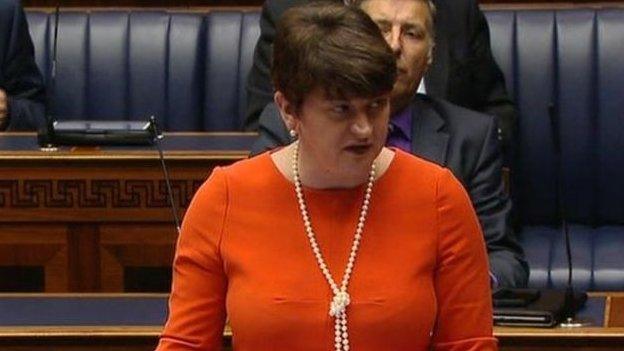
The Budget bill being brought forward by Arlene Foster this week is the budget agreed in February.
A couple of weeks ago it looked as though Stormont was heading for an imminent financial crash.
To recap: Sinn Féin withdrew its support for the welfare reform part of the Stormont House Agreement.
In response, the DUP finance minister said she couldn't bring forward the piece of legislation that allows departments to spend the money that was agreed in February's budget (the Budget No.2 Bill).
Without that piece of legislation, the most senior official in the Department of Finance would be obliged to take control of Stormont's budget and impose immediate 5% cuts to all departments, with possibly worse to come.
It now looks highly unlikely that will happen - with one major caveat.
Phantom budget
The reason? The finance minister's so-called phantom budget (she prefers provisional budget.)
The Budget Bill being brought forward by Arlene Foster this week is simply the budget which was agreed in February.
It contains all the financial aspects of the Stormont House Agreement, which amount to about £600m this year.
But you might ask how can this possibly work given the financial aspects of the Stormont House are no longer there, won't the budget be £600m short?
The short answer is that it doesn't matter for now, but it will matter in about three months time.
Control Total
It works like this.
If the Budget Bill is passed, it gives departments the legal authority to keep spending up to the totals laid out in the bill and the threat of the top civil servant stepping in will be gone.
Meanwhile, in another spreadsheet is a number known as the Control Total.
It's the figure that the Treasury has authorised Stormont to spend.
Usually, the number in the budget matches the Control Total but in the current circumstances - no Stormont House - the budget number is £600m higher.
Stormont is not allowed to breach the Control Total, but it will do eventually under the current budget.
The key word here is eventually - the Control Total will not be breached immediately.
Crunch point
The experts in these things reckon the crunch point will come in the autumn at what's known as October Monitoring, one of Stormont's in-year budget reallocations.
So that gives the DUP and Sinn Féin three or four months to find a way through the welfare reform/budget problems.
If you've been paying attention, you'll remember I mentioned a caveat.
It is simply Sinn Féin's attitude to the Budget Bill - if they decide to support it then time has been bought as described above.
But if they block it then it's straight back to crisis.
- Published8 June 2015
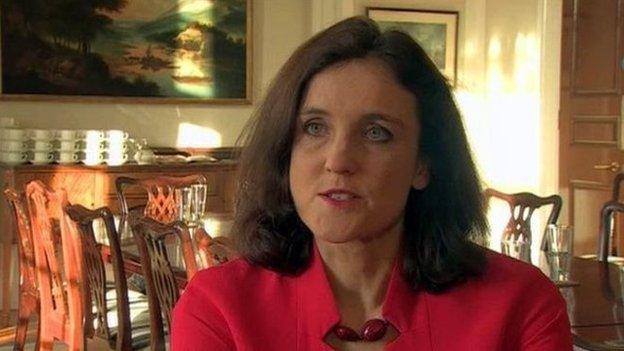
- Published4 June 2015
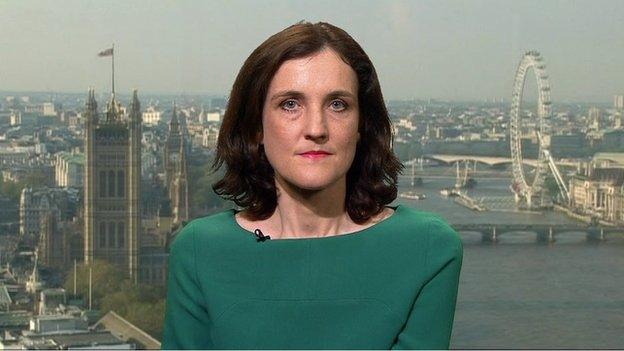
- Published2 June 2015

- Published2 June 2015

- Published31 May 2015
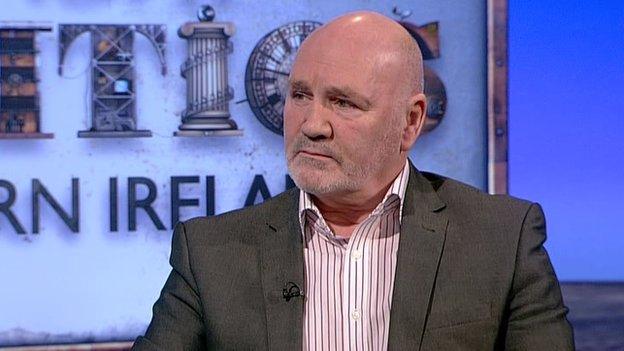
- Published21 May 2015
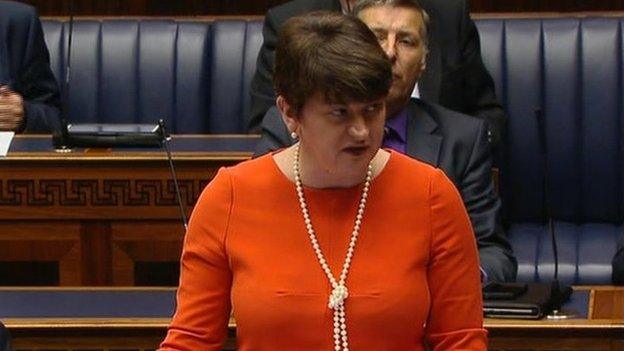
- Published30 May 2015

- Published27 May 2015
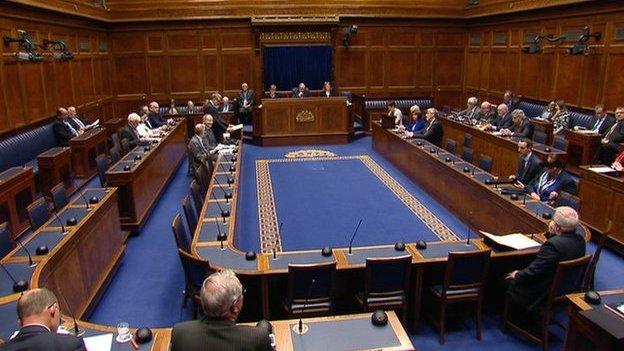
- Published27 May 2015
